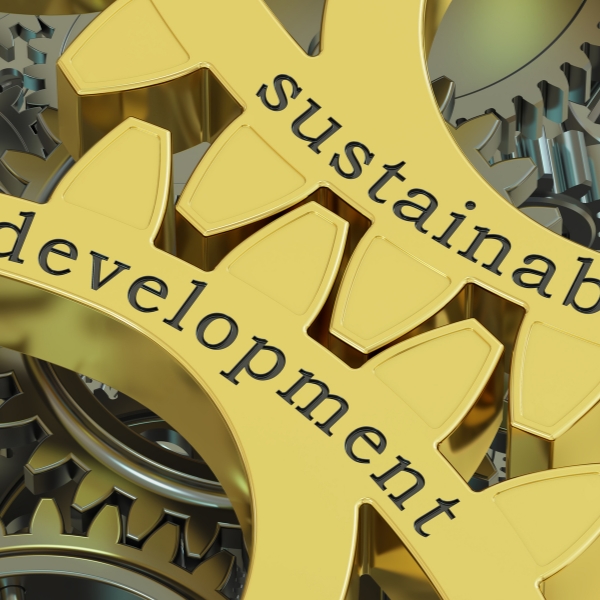Innovative Housing Projects Making Suffolk County More Inclusive
Suffolk County, located on Long Island, New York, is known for its beautiful landscapes and vibrant communities. However, like many regions across the United States, it faces challenges related to housing affordability and inclusivity. Fortunately, innovative housing projects are emerging that aim to create a more inclusive environment for all residents. In this blog post, we’ll explore some of these groundbreaking initiatives that are transforming Suffolk County into a welcoming place for diverse populations.
1. Affordable Housing Initiatives
One of the most pressing issues in Suffolk County is the lack of affordable housing options. To combat this challenge, several innovative projects have been launched to provide low-income families with safe and secure homes.
- Mixed-Income Developments: These projects blend market-rate units with affordable ones to foster diversity within neighborhoods.
- Community Land Trusts (CLTs): CLTs allow communities to own land collectively while providing affordable housing options through long-term leases.
By focusing on mixed-income developments and community land trusts, Suffolk County aims not only to alleviate financial burdens but also promote social integration among different socioeconomic groups.
2. Adaptive Reuse Projects
Another exciting trend in Suffolk County’s housing landscape is adaptive reuse—transforming existing buildings into residential spaces rather than constructing new ones from scratch. This approach helps preserve local history while addressing modern needs.
- Repurposing Historic Buildings: Old factories or schools can be converted into loft apartments or multi-family homes.
- Environmental Benefits: By reusing structures instead of demolishing them, these projects reduce waste and minimize carbon footprints.
Adaptive reuse not only provides unique living spaces but also revitalizes neighborhoods by breathing new life into underutilized properties—a win-win for both residents and the environment!
3. Supportive Housing Models
Supportive housing models focus on providing comprehensive services alongside stable living environments for vulnerable populations, such as individuals experiencing homelessness or those with disabilities.
- Integrated Services: These programs often include access to healthcare services, job training programs, and mental health support.
- Community Engagement: Residents are encouraged to participate in decision-making processes regarding their living conditions, fostering ownership and accountability.
By prioritizing supportive housing models in Suffolk County’s development plans, local leaders demonstrate their commitment not just to shelter but also to holistic well-being—ensuring everyone has an opportunity for success within their community.
4. Sustainable Building Practices
As climate change becomes an increasingly urgent issue worldwide—including here at home—Suffolk County has embraced sustainable building practices that prioritize environmental responsibility without sacrificing comfort or accessibility:
- Energy-Efficient Designs: Incorporating solar panels and energy-efficient appliances reduces utility costs while promoting sustainability.
- Green Spaces Integration: Many new developments feature parks or gardens that enhance quality of life by offering recreational areas accessible to all residents regardless of income level.
These eco-friendly initiatives positively contribute towards making our planet healthier while creating inviting spaces where people want—and can afford—to live!
5. Community-Centric Development Approaches
Lastly, the emphasis on community-centric development approaches ensures that future growth aligns closely with resident needs:
- Participatory Planning Processes: Engaging locals during the planning stages allows developers to gain better insight into what features would benefit current inhabitants most effectively.
- Cultural Inclusivity Focused Design Elements: Incorporating elements reflective of diverse cultures strengthens neighborhood ties among various ethnicities residing together harmoniously over time!
Through fostering collaboration between stakeholders—from government officials to grassroots organizations—Suffolk’s vision remains clear; inclusivity isn’t merely about physical space—it encompasses emotional connections formed through shared experiences too!
—
Conclusion
Innovative housing projects across Suffolk County exemplify how thoughtful design combined with strategic planning can lead us toward greater inclusiveness within our communities! By investing time and resources into developing solutions tailored specifically to addressing the challenges faced daily by many citizens today, we pave pathways forward filled with hope and possibility. As we continue exploring ways to improve lives around us, let’s celebrate the successes achieved thus far and remain committed to working collaboratively to build brighter futures ahead!
popular news & articles
As our loved ones age, finding the right resources and […]
Reducing Plastic Waste: Local Programs and Policies for a Cleaner […]
Bike Lanes and Pedestrian-Friendly Initiatives: Expanding Alternative Transportation on Long […]
Sports and Leadership: How Athletics Build Confidence in Young People […]
news via inbox
Stay Connected

The Honorable Paul J. Tonna is a distinguished public servant, community advocate, and seasoned leader with a career marked by dedication to environmental sustainability, social equity, and community development. Serving as a Suffolk County Legislator for twelve years, including three years as Presiding Officer, Tonna played a pivotal role in advancing public health, environmental conservation, and workforce housing initiatives… Read More
Learn more about Paul Tonna at his website PaulTonna.com
Related Articles
Paul Tonna serves as Molloy College’s Executive Director for The Energeia Partnership, a leadership academy dedicated to identifying and addressing the serious …
The Honorable Paul Tonna serves as Vice Chairman and Executive Vice President of Corporate Affairs for American Health Group.
Paul Tonna joined the South Huntington Water District as a Commissioner in March, 2006, bringing with him a diverse background including experience in …
Mr. Paul Tonna is a former healthcare executive, elected official, and university adjunct professor. Paul currently serves as executive director of Molloy College’s leadership academy, The Energeia Partnership, Suffolk County…
Paul Tonna, Managing Partner, Fun Facts, Deborah Young, Director of Operations & Finance, Fun Facts, Patricia Miller, Partner, Real Estate Development.
Paul J. Tonna – Public Service Leader and AERTC Advisory Board Member | Championing Sustainable Energy Solutions and Community Development.









